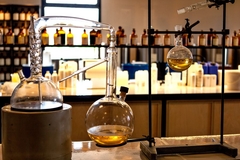Australia and New Zealand’s latest sunscreen standards take effect in July

03 Jun 2024 --- Australia says new sunscreen products included in the Australian Register of Therapeutic Goods (ARTG) from July must comply with the updated Australian/New Zealand Sunscreen Standard.
Published by Standards Australia in 2021, the update seeks to align with international sunscreen testing methodologies and enhance the safety and effectiveness of products marketed in the two countries.
New Zealand will also ban the use of PFAS in cosmetic products starting in 2026 to protect health and the environment.
Transition periods
The Therapeutic Goods Administration (TGA) published compliance transition timelines with the agreements meant to give manufacturers enough time to modify their goods to comply with the new requirements.
- All new sunscreen products registered in the ARTG from July must comply with the 2021 Sunscreen Standard.
- Aerosol and spray pump sunscreens already included in the ARTG before July will have a one-year transition period to meet the new labeling requirements specified in the 2021 Sunscreen Standard.
- All existing sunscreen products, including aerosol and non-aerosol types, included in the ARTG before July will have a five-year transition period. They can comply with the 2021 Sunscreen Standard or the previous 2012 standard during this time.
TGA says that by the end of these transition periods, all sunscreen products in the ARTG, new and existing, must fully comply with the 2021 Sunscreen Standard. This includes reviewing and potentially reformulating products, updating labeling and conducting testing.
 Existing sunscreen products will have up to five years to transition to the new testing and labeling requirements.A thorough consultation process with stakeholders led to the adoption of the 2021 Sunscreen Standard. The revised standard improves the validity of sunscreen products’ protective claims by adhering to international testing protocols.
Existing sunscreen products will have up to five years to transition to the new testing and labeling requirements.A thorough consultation process with stakeholders led to the adoption of the 2021 Sunscreen Standard. The revised standard improves the validity of sunscreen products’ protective claims by adhering to international testing protocols.
Sun care spotlight
Shiseido brand Anessa unveiled the Sunshine Project, an initiative to provide children with “holistic well-being” by promoting being outside with proper sun protection.
Attitude introduced its mineral-based sun protection to the Oceanly Skincare collection. It is formulated with phytoglycogen, a marine-friendly alternative to glycogen and a vegan collagen substitute.
A study showed the influence of vitamin D and its derivatives on slowing down skin aging via different mechanisms that offer protection against UV-induced cell damage, which causes all skin cells to enter senescence—also referred to as “cell death.”
By Venya Patel













